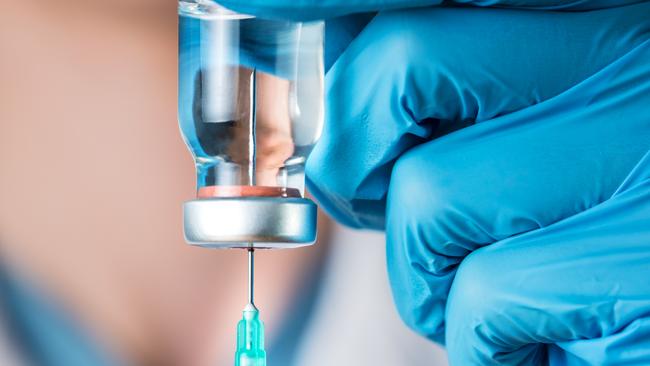Coronavirus: Johnson & Johnson and Eli Lilly pause vaccine trials
Two late-stage COVID-19 medical trials have been paused in the space of 24 hours over potential safety concerns.

Two late-stage COVID-19 medical trials have been paused in the space of 24 hours over potential safety concerns, the latest setbacks to scientists in the long fight against the pandemic.
US pharmaceutical firm Eli Lilly on Wednesday AEDT suspended its phase three trial of its lab-produced antibody treatment in hospitalised patients over an unspecified incident.
A day earlier, the American pharmaceutical giant Johnson & Johnson temporarily halted its phase three vaccine trial due to an unexplained illness in a study participant.
J & J research head Mathai Mammen told investors it was a “temporary pause” that could be unrelated to its drug.
It’s not unusual for final-stage clinical trials to hit a problem — indeed, they are designed to scale up the number of participants to thousands or tens of thousands to tease out side effects that may be very rare.
Last month, British firm AstraZeneca became the first in the world to announce a pause of its vaccine trials after one patient in Britain was diagnosed with an inflammatory condition affecting the spine. The trial was later resumed but remains suspended in the US for unclear reasons.
The Lilly study began in August across more than 50 sites in the US, Denmark and Singapore with the aim of recruiting 10,000 people.
Lab-produced antibody treatments have been making headlines recently after US President Donald Trump credited one therapy, developed by biotech firm Regeneron, with curing him of COVID-19.
Monoclonal antibodies are a relatively new class of drugs that are best known for treating certain types of cancer and autoimmune disease.
Human immune systems produce antibodies, which are infection-fighting proteins, and vaccines teach our bodies to be prepared to make the right ones for particular pathogens.
The COVID-19 treatment studied in the paused trial was based on an effective antibody Lilly found in a recovered patient.
Lilly didn’t disclose any details about the safety concern or how many people are affected.
But generally speaking, mild side effects of intravenously administered therapies can include fevers, chills and fatigue, while moderate to severe infusions can cause chest pain and shortness of breath.
J & J, meanwhile, moved to buoy confidence in its vaccine.
“It’s not at all unusual for unexpected illnesses (to occur) in large studies over their duration,” Dr Mammen said. “In some cases, serious adverse events … may have something or nothing to do with the drug or vaccine being investigated.”
AFP



To join the conversation, please log in. Don't have an account? Register
Join the conversation, you are commenting as Logout